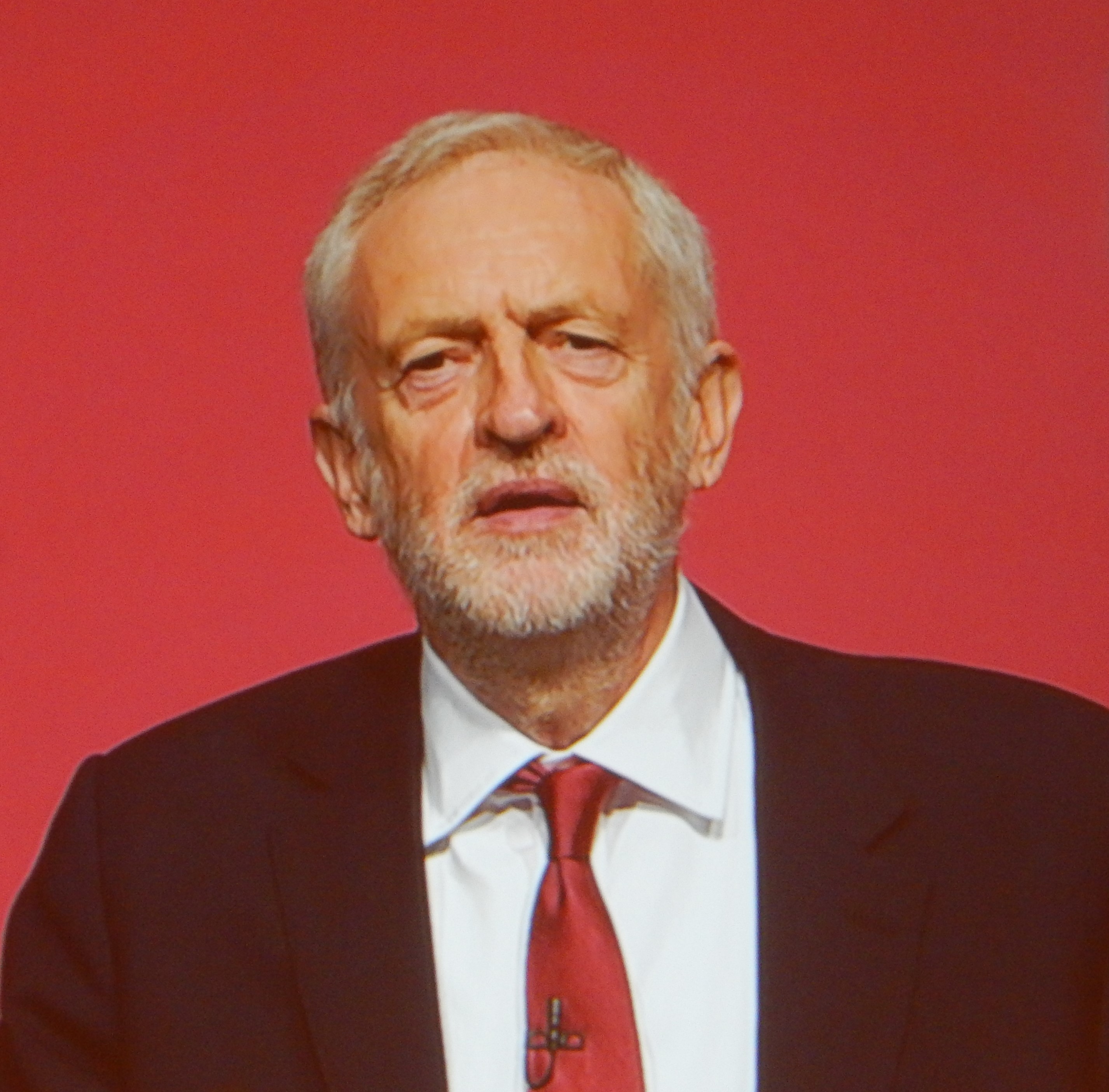By John Pickard
The Forde Report is out and where it deals with undeniable facts, it is a crushing vindication of the charge that senior members of Labour’s own Party apparatus sabotaged the 2017 general election. But, unfortunately, written as it is in a lawyer’s language, the Report is hedged around with equivocations and qualifications and effectively treats the saboteurs with kid gloves.
The Forde inquiry panel was set up to investigate the content of the Labour Party’s official submission to the Equalities and Human Rights Commission. It was entitled The work of the Labour Party’s Governance and Legal Unit in relation to antisemitism, 2014-2019; produced in March 2020, it was subsequently widely leaked and is referred to throughout the Forde Report. The Panel was also charged with investigating the leak itself, although it was unable to draw any conclusions on that.
The Panel was in no way representative of Labour’s ordinary rank and file members. If anything, it was a Who’s Who of the Labour establishment: Martin Forde QC, Baroness Lister of Burtersett, Baroness Wilcox of Newport and former General Secretary, Lord Larry Whitty. It was originally charged with reporting over two years ago, and its report is in the public domain at last.
We can leave Labour Party members to read the full report for themselves, should they wish, and it can be downloaded here. Much of it deals with evidence of the inconclusive ‘he said, she said’ kind. Nevertheless, much of the detail is devastating and the only way to give a true flavour of the factual material is by citing it at length.
Rambling and repetitive – 138 pages
We can only deal here with a few selected areas of the report, and the extracts we use are not necessarily in the order in which they appear in what is a 138-page, sometimes rambling and repetitive document. Nevertheless, the quotes give a flavour of its main conclusions on the factual matters.
In his notes at the beginning, Forde makes the astonishing assertion that “within minutes” of the Panel being set up, there were “…continued multiple threats of legal action from various parties against the Panel, individuals and the Party”. It was because of these legal threats from people named in the leaked antisemitism report, that the panel were led to a consequential decision “not to name individuals other that where their role is obvious, uncontentious and in the public domain.”
As a result, it was not always easy for the panel to collect evidence. “Some [witnesses] were accompanied by lawyers. It was concerningly difficult to gather vital minutes of meetings and to understand the rationale for decisions. Key documents were unavailable, others were not supplied and details of meetings were not recorded.”
The WhatsApp messages passed between Labour staffers.
The WhatsApp messages cited in the leaked Labour document were an important revelation for Party members, showing as they did the complete disdain of senior party staffers for the Labour leadership (specifically the office of the leader of the opposition, LOTO) and certain MPs, like Diane Abbot.

The WhatsApp messages we have seen” Forde writes, “reveal a real antipathy towards LOTO by HQ staff after Jeremy Corbyn won the Party leadership: and, according to the evidence we received, and, in one instance, a deliberate go-slow by certain members of staff designed to frustrate the efforts of a colleague from an “opposing faction” to promote the Party’s wider interests.”
It was suggested that the messages were cherry-picked or doctored in some way, but Forde demolishes that idea. “…it has been put to us by a number of witnesses” he writes, “that the extracts of the [WhatsApp] messages quoted in the Leaked Report were cherrypicked and selectively edited, such that the quotes that appear in the Leaked Report are both unrepresentative and misleading”.
Discriminatory attitudes expressed by senior staff
“Having review the transcripts and considered evidence from many of those involved, we do not agree. We find that the messages on the SMT WhatsApp reveal deplorably factional and insensitive, and at times discriminatory attitudes expressed by many of the Party’s most senior staff…the substance of the quoted messages is concerning – and totally inappropriate from senior staff of a purportedly progressive political party – and the selective editing does not equate to an overall distortion of the quoted messages.” (emphasis added).
If anything, Forde implies that the leaked Labour document understated the degree of antipathy towards Labour’s campaign., “…in the main, our view is that the messages quoted in the Leaked Report fairly represent the tone and contents of the discussions about Jeremy Corbyn, his staff, and the Party’s Left in the SMT WhatsApp groups and across the selected instant message chats. There are a significant number of comments in the transcripts which are not quoted in the Leaked Report, but which demonstrate the same kind of hostility as those that were.” (emphasis added)
The insulting words used against Diane Abbot in particular were looked at by Forde, who concluded that “The criticisms of Diane Abbott are not simply a harsh response to perceived poor performance – they are expressions of visceral disgust, drawing on racist tropes, and they bear little resemblance to the criticisms of white male MPs elsewhere in the messages.” (emphasis added).
“In our view” the Report says, “the fundamental problem is that people who are committed to progressive politics find it difficult if not impossible to accept that they [“they” being senior staff at Labour HQ] “might have acted in a way which was discriminatory.” (my emphasis)
The secret diversion of campaign resources.
The leaked document revealed to astonished Labour members that during the 2017 general election, senior officers at Labour HQ had diverted large sums of money and as many as 20 members of staff to support Labour MPs in safe seats. This was done without the knowledge of the Campaign Committee that was supposed to be running the election and which was trying to win new seats. The secret campaign was based at Ergon House, formerly a Labour Party office and it included substantial funds (£130,000) and staff.
“From early in the campaign” the Forde report points out, “LOTO wished to pursue a more aggressive strategy, seeking to win significantly more new seats that HQ and the regions seemed to be targeting…HQ staff believed that the polls at the beginning of the campaign required a more cautious, defensive strategy [and}…did not depart from that position until late in the campaign, if at all.”
In fact, the strategy of the leadership had been the correct one, because opinion polls shifted dramatically the longer the campaign went on. In the end, Labour came within a few thousand votes, in a handful of seats, of winning the election.

That unexpectedly good result dismayed the Labour right wing. Referring to the reaction of some Labour Party staffers when the results were coming in, “some had mixed feelings about what the better than anticipated result would mean for the Party’s future and for their own roles” (my emphasis). There were no “mixed feelings” among the tens of thousands of Labour members who put in the graft during the election, but some of the jokers in Labour’s HQ were clearly disappointed that the results were so good.
MPs selected for secret support were opposed to Corbyn
On the secret diversion of funds, the Forde panel found “that the decision to set up the Ergon House operation covertly and divert money and personnel there without authority of the Campaign Committee, whilst not illegal, departed from the approved strategy; it was as such wrong…it would have been customary for strategic Election Campaign budget allocations to be reported to the Campaign Committee and the Campaign Coordinator (and hence to LOTO). This was not only not done, but there was also deliberate concealment.” (emphasis added)
The Forde panel looked at the basis upon which the secret Ergon House funds and support were allocated to which Labour MPs. Were they, Forde asked, chosen “objectively” or “for support at least in part because they were deemed by the staff in question to be from the ‘correct’ faction?” There are no prizes for guessing the answer…”It seems to us that the latter was the case”.
Of the MPs supported in secret, “in the main, they are to the Right (or centre Right) of the Party, and none of them were supporters of Jeremy Corbyn…we think it fair to surmise that being opposed to Jeremy Corbyn was necessary (if not sufficient) for inclusion on the list” (emphasis added)
The Forde report suggests that the secretive diversion of funds, spearheaded by the then General Secretary, Iain McNicol, was not illegal, but it was nevertheless wrong. Forde is clearly pulling his punches in relation to what Party members would see as a disgraceful and unforgiveable misuse of Party funds.
It would not have been done as a secret operation, if the Labour officials thought they were doing the ‘honest’ thing. Thousands of Labour Party members have been expelled for much less. It may not have been outright fraud, but as a minimum, the Labour Party and Martin Forde ought to be demanding McNicol’s exclusion from membership.
Racism, misogyny and antisemitism
Many of the submissions from Party members to the Forde panel, according to the report, were “depressing” in so far as they showed the degree of racism and misogyny present in the Labour Party HQ. “Many of those who contacted us” the it says, “complained of discrimination across the whole range of protected characteristics as well as various kinds of bullying and harassment at a local level.”
“A significant number of submissions by Party members [were] about their experiences of “racism, islamophobia and sexism”
“…we were provided with a wealth of evidence (both oral and written) regarding the perceived widespread existence of discriminatory behaviours, based on religion, race, gender and sexual orientation.”
The panel concluded that “there are serious problems of discrimination in the operations of the Party” referencing “The undoubted overt and underlying racism and sexism apparent in some of the content of the WhatsApp messages between the Party’s most senior staff”
The report referred to submissions from current and former members of staff “describing their experience of discrimination and lack of sensitivity to issues of racism and sexism displayed by senior management.” (emphasis added)
Forde also noted, in reference to the offensive WhatsApp messages about Diane Abbott, “that MPs of colour and female MPs were not always treated during the relevant periods in the same way as their white/male counterparts.”

Unfortunately, as he does so many times in the Report, Forde again uses kid gloves. Instead of saying out loud that the behaviour of Labour staffers was an utter disgrace, he addresses his criticism in language that is far too soft and almost apologetic. The tone should not be one of criticising ‘more in sorrow than anger’ – it should be a case of calling out Labour officials for being racist and misogynistic.
Surge of allegations of antisemitism
In general, Forde found, “…many individuals supplied evidence of discrimination and a perceived hierarchy of protected characteristics. To be clear, the evidence received pointed to a perception that some protected characteristics were regarded, by the Party, more highly than others. Equally, this meant that some were less highly regarded.” (emphasis added).
The report refers to a “surge” of cases of antisemitism, but in fact this was a surge of allegations, often dozens from single Right-wing MPs. Many that turned out to be spurious or not even to related to Labour members. But in this context, Forde writes, “the Party was in effect operating a hierarchy of racism or of discrimination with other forms of racism and discrimination being ignored. For a party which seeks to be a standard bearer of progressive politics, equality and workers’ rights, this is an untenable position.”
Referring to the report from 2020, Forde suggests, “there is nothing in the Leaked Report (or elsewhere in the evidence we have seen) to support the conclusion that the problem of antisemitism in the Party was overstated” but elsewhere he makes the point that “It was of course also true that some opponents of Jeremy Corbyn saw the issue of antisemitism as a means of attacking him.”
The Labour Party’s disciplinary processes biased against the Left
Although the Forde panel was looking at the leaked document from 2020, it made a number of comments about what is in effect the more recent history of the Party and its disciplinary policy. It confirmed the view of thousands of Labour members that the process was unclear, arbitrary, lacked natural justice and was biased against the Left. It refers to the fact that members were suspended, sometimes for years, without any due process apparently in place.
“…we do have concerns” the Report says, “that there appear to be no published procedures governing the use of administrative suspensions and that these appear to be operating without clear criteria for their use being widely available. We are also concerned that the provisions which allow for individuals to have membership removed or denied on the grounds they have committed prohibited acts could be exploited for factional purposes”.
How were the expulsions and suspensions selected? As Forde says, “algorithms” were used (and are still used) to “search for historical social media posts…” The political basis of these searches and the nature of the algorithms is kept hidden from the Party membership to this day.
In the first leadership election in 2015, there was a (cheap) facility for registered supporters to vote, as well as members and affiliated members. Having suffered such a monumental shock by Corbyn’s massive victory, when he was challenged again in 2016, the Labour party apparatus went into overdrive to find ways and means to exclude the same people from voting. “Validation” processes were carried out, and in 2016 hundreds of applicants were rejected.
”We have seen evidence”, Forde says, “that a material number were rejected on problematic grounds…”
“In our view, however, this [trawl of social media/validation] was by and large a factionally slanted exercise designed and carried out with a startling lack of transparency, which had the goal of undermining Jeremy Corbyn’s chances in the leadership elections.”

“In our view”, the Forde panel found, “the intention and effect of both validation exercises was to remove ballots from individuals who would otherwise have voted for Jeremy Corbyn. It does not seem to us credible to suggest that the exercise (in particular the social media component) was not targeted at applicants and members on the Left…” (emphasis added).
In fact, the report relates the evidence from a former (temporary) member of staff, employed to actively hunt for ‘trots’ (ie anyone on the Left). He described “cheering and bell-ringing” when there was a successful expulsion.
The Labour apparatus always opposed Corbyn
It is quite incredible that the Forde Report describes in some detail the antipathy felt by the full-time Labour apparatus towards Jeremy Corbyn, although he (twice) had an overwhelming mandate from the membership. Yet at the same time, the report speaks of “factionalism” without any attempt to describe how it arises and who was responsible for it.
It is little use referring (as the report does) to “conduct on the part of some senior staff which was wholly unacceptable…” and then discussing “factionalism” as if it had fallen from the skies. As Forde makes clear, “throughout most of the Party’s history – with the exception of the Blair years – the majority of the ordinary constituency membership has been to the Left of the PLP, the Party leadership, and often the NEC…”
As to the party apparatus being a neutral civil service, “It certainly appears to us that by 2015 the majority of the Party’s senior staff did not see their roles as requiring perfect neutrality, or even the appearance of it…HQ’s broad political alignment remained steadily on the Right of the Party, even as the elected leadership (and membership) moved to the Left…” indeed, one submission referred to the atmosphere at Labour HQ as being “a monoculture.”
Forde tells us what we already knew, that ”there was deep hostility from the majority of the PLP to Jeremy Corbyn’s leadership”…and “a small minority of HQ staff, including some senior staff, were from the start unwilling to accommodate or proactively assist LOTO…”
But stating the bald facts like this – none of it ‘news’ to Labour Party members – does not make the behaviour of the PLP or party apparatus acceptable. When the full time apparatus of a political party tries to thwart the wishes of the overwhelming majority of the party members, that is not just ‘factionalism’ it is sabotage. But Forde will not say that.
Forde’s failure to see things as they are.
Where the Forde report deals with undeniable facts, it is a crushing condemnation of Labour’s right wing. But when it refers – as it frequently does – to “factionalism”, Forde treats it as if Left and Right are like two errant schoolboys who only need their head banged together.
He outlines on multiple occasions that the PLP and Party apparatus were not reconciled to the leadership choice of two thirds the membership. He accepts that the Labour apparatus ought to behave like a neutral ‘civil service’ that supports the work of the Party, but also seemingly accepts without question the fact that it does not behave that way.
Effectively, Forde just shrugs his legal shoulders. He even quotes approvingly in several places the 2019 election review of Labour Together, which itself is a right-wing factional organisation, separate to the Labour Party, with its own funds and employees.
What Party members can see is that Jeremy Corbyn, was twice given an overwhelming mandate from the Party membership, but from Day One, the right wing in the PLP saw it their task to undermine him and sabotage his leadership. What applied to the PLP applied equally to senior officers in the Labour apparatus.
The PLP and Party apparatus thought the Party belonged to them alone
Forde’s completely unwarranted ‘even-handedness’ can be summed up in one paragraph (C4.1): “it is clear that factionalism detrimentally affected the Party’s performance in the 2017 general election in a broad sense…” There is not the slightest attempt to ask how this “factionalism” arose, because the answer would inevitably have meant a finger pointing at the PLP and the Party apparatus and that is something Martin Forde was not prepared to do.
It is not a matter of who got on well with whom or who failed to make the necessary ‘overtures’ or compromises, it is a matter of which group was supported by two thirds of the membership, and which group (Party HQ, the PLP) thought the party belonged to them and them alone.
Labour’s right wing will probably now want to bury the Forde report, principally because it highlights hard facts that leave them lying in a gutter. They will no doubt hope the report gets filed away somewhere in Labour HQ where it can gather dust. Meanwhile, the right-wing still dominate HQ and algorithms are still used to trawl through social media looking for Lefts and not one of the failings in the apparatus outlined in the report will be addressed.
For Party members, the Forde report should be a call to arms, and an opportunity to raise the question of Party democracy. The issue of Open Selection is well known – and it would have become Party statute in 2018, had it not been for the timidity of the Left, including Corbyn – but far too little attention has been paid to the Labour Party apparatus. It is disgraceful that not a single Labour fulltime regional or national official is elected by the membership. Most trade unions at least elect the general secretary.
We ought now to begin formulating resolutions to promote the election, not only of the general secretary by the membership, but also other national officers like treasurer and Labour regional secretaries, or ‘directors’ as they now call themselves.
As for Forde’s “recommendations”, he falls back on arcane and convoluted ‘legalese’ to improve this or that aspect of Party work. Instead of condemning outright the sabotage by full-time officials, as he ought to have done, he ends up suggesting tweaks to the rule book. What Labour members should demand is greater openness, democracy and, as a minimum, rank and file control over who gets to be a Labour candidate and who gets to be a national officer.



